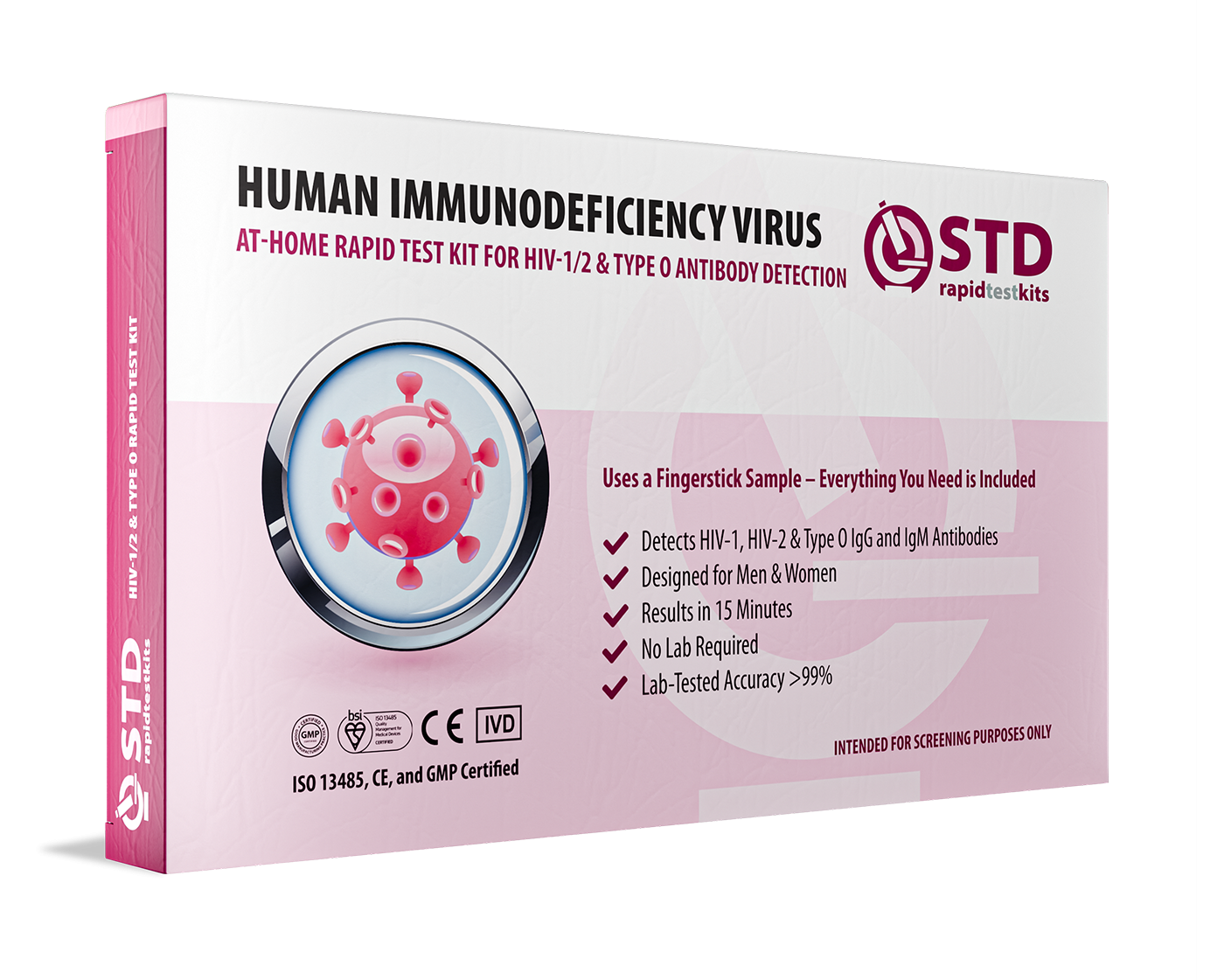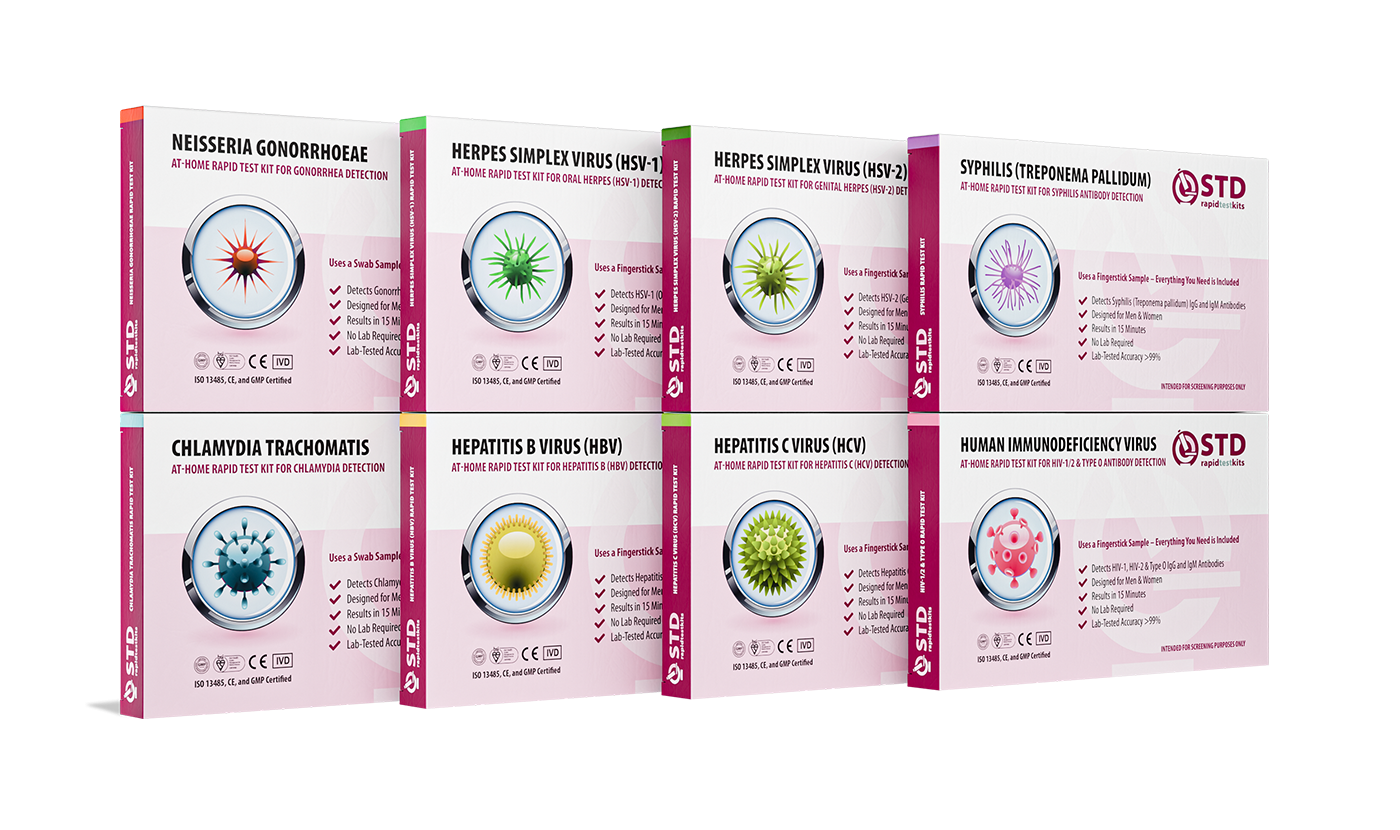Quick Answer: Yes, HIV can show up in your mouth, often as one of the earliest signs. Look for symptoms like white patches (oral thrush), painful ulcers, gum inflammation, or chronic dry mouth. If you notice changes in your oral health after a risky exposure, get tested immediately.
How HIV Affects the Mouth
HIV targets your immune system, which normally fights off the bacteria and fungi that live in your mouth. When that defense weakens, even slightly, you’re more likely to develop oral infections and inflammation.
Early in HIV infection (often 2–4 weeks after exposure), your immune system drops rapidly. This is when people may develop:
- White patches on the tongue or cheeks (oral thrush)
- Red, swollen, or bleeding gums (HIV gingivitis)
- Small, painless ulcers inside the cheeks, lips, or tongue
- Cracked corners of the mouth
- Severe dry mouth or burning sensation
These signs don’t confirm HIV, but they’re red flags. Especially if you’ve recently had unprotected sex, shared needles, or another high-risk exposure.
People are also looking for: Is Kissing Safe? These STDs Say Otherwise
Oral Thrush: The Most Common Mouth Symptom
Oral thrush (also known as candidiasis) is one of the most visible early signs of HIV in the mouth. It looks like white, creamy patches on your tongue, inner cheeks, or the roof of your mouth. Unlike regular plaque, these patches don’t scrape off easily, and if they do, they often leave a red, raw surface behind.
Thrush is caused by a yeast called Candida albicans, which naturally lives in your body. But when your immune system is under stress, that yeast overgrows. In newly infected people, oral thrush can appear within weeks of HIV exposure. It’s also common in people with later-stage HIV or AIDS who aren’t on treatment.
Red flag: If you’ve never had thrush before, and it appears after a possible HIV exposure, get tested.
Ulcers, Sores, and Lesions: What’s Normal, What’s Not
Many people experience mouth ulcers from time to time, stress, spicy food, or even toothpaste ingredients can trigger them. But HIV-related ulcers tend to last longer, recur more often, and show up in unexpected places (like your gums, soft palate, or under the tongue).
HIV mouth sores may be:
- Shallow, round, and painful
- Painless but persistent
- Accompanied by fatigue, sore throat, or fever
You may also notice dark purple or red lesions if HIV progresses to a condition called Kaposi’s Sarcoma, though this is more common in untreated, advanced HIV. Bottom line: if you see sores that don’t heal in 7–10 days, test for HIV along with other STIs.
Check Your STD Status in Minutes
Test at Home with RemediumHIV Rapid Test Kit

 For Men & Women
For Men & Women Results in Minutes
Results in Minutes No Lab Needed
No Lab Needed Private & Discreet
Private & DiscreetOrder Now $33.99 $49.00
Gum Changes and HIV Gingivitis
Even in its earliest stages, HIV can cause noticeable gum disease. This includes swollen, bleeding gums, gum recession, or pain while brushing. This is known as Linear Gingival Erythema (LGE), a unique type of gum inflammation seen in HIV-positive individuals.
It’s not about poor hygiene, it’s about your immune system losing control of bacteria in your mouth. You might notice:
- Bright red bands along the gum line
- Persistent bleeding, even with gentle brushing
- Receding gums or bad breath
If your dentist notices these signs, and you’re at risk, don’t wait, get an HIV test.
Other HIV-Related Oral Symptoms
Beyond thrush, ulcers, and gingivitis, HIV can cause a range of less common, but still important, oral symptoms:
- Hairy Leukoplakia: White patches with a corrugated appearance, often on the sides of the tongue. Caused by the Epstein-Barr virus.
- Dry mouth (xerostomia): Can lead to trouble swallowing, speaking, or eating. May signal early immune suppression.
- Angular Cheilitis: Cracking and inflammation at the corners of the mouth, often painful and recurring.
These may not seem like a big deal at first. But in combination with recent risk factors or flu-like symptoms, they can be early warning signs. Don't dismiss what your mouth is trying to tell you.
People are also looking for: Is Kissing Safe? These STDs Say Otherwise
When to Get Tested (And Where)
If you’ve had potential exposure to HIV, through sex, blood, or shared equipment, and now notice oral symptoms that aren’t going away, it’s time to test.
You can visit a local clinic, doctor, or order an at-home HIV test kit discreetly. These kits use either a blood drop or oral swab and give results in minutes. Early detection means faster treatment, and a better outcome.
HIV is not a death sentence. But ignoring early signs can delay care, and that’s when the risks grow. Pay attention. Take action.
Can Dentists Spot HIV First?
Sometimes, yes. Dentists are often the first healthcare providers to notice HIV-related changes, especially if you haven’t seen a doctor in a while. Unusual gum inflammation, persistent thrush, or recurring ulcers may prompt a referral or suggest immune suppression.
Unfortunately, not all dentists are trained to recognize HIV symptoms, or ask the right questions. If you’re noticing new mouth issues and your dentist seems unsure, it’s okay to advocate for yourself. Ask for a referral, or consider getting tested independently.
Your mouth isn’t just about teeth, it’s a window into your health.
You Noticed Something. Now What?
If you’ve read this far, chances are you’ve noticed a change in your mouth, or you’re worried because of a recent risk. First, take a breath. Then take a step forward.
Here’s what to do:
- Document the symptom: Take a photo, jot down when it started, what it feels like, and if it’s changed.
- Check your risk factors: Unprotected sex, shared needles, recent partner diagnosis? Add it to the context.
- Order a test: You don’t have to wait. Order an HIV test kit from home and get results in minutes.
- Follow up: If it’s negative but symptoms persist, retest in a few weeks, or see a provider to rule out other causes.
Knowledge is power. Don’t let shame, stigma, or fear of “what if” keep you from clarity. You’re allowed to ask. You’re allowed to know. You’re allowed to act.
Check Your STD Status in Minutes
Test at Home with Remedium8-in-1 STD Test Kit

 For Men & Women
For Men & Women Results in Minutes
Results in Minutes No Lab Needed
No Lab Needed Private & Discreet
Private & DiscreetOrder Now $149.00 $392.00
For all 8 tests
Can You Still Kiss, Hook Up, or Date?
If you’re noticing HIV-related symptoms in your mouth, or just tested positive, your love life isn’t over. You can still date, kiss, have sex, and be desired. What changes is how you approach safety, communication, and self-care.
Kissing is safe. HIV doesn’t spread through saliva. Even deep kissing is extremely low risk unless both partners have bleeding gums or open sores.
Sex is still on the table, with protection, testing, and (if positive) medication. People living with HIV who are undetectable can’t transmit the virus through sex. That’s the power of U=U (Undetectable = Untransmittable).
If you’re scared to disclose, start with one person. You don’t owe everyone your status, but you do deserve partners who meet you with empathy, not ignorance.
What If You’re Too Afraid to Test?
You’re not alone. Many people avoid testing because they’re terrified of the result. They worry what it means. Who they’ll have to tell. Whether they’ll be okay. But avoiding the test doesn’t protect you. It just keeps you in limbo.
Testing doesn’t change your status, it only tells you the truth. And truth gives you choices. If it’s negative, great. If it’s positive, you can start treatment early and live a long, full life. HIV is manageable. The sooner you know, the sooner you take back control.
You can start with a confidential at-home HIV test. It arrives in unmarked packaging and takes minutes to use. No appointments. No awkward questions. Just clarity.
You’re allowed to be scared. But you’re also allowed to get answers. And healing starts with knowing.
FAQs
1. Can HIV cause mouth ulcers?
Yes. HIV can lead to recurrent or stubborn mouth ulcers, especially during the acute (early) stage or when the immune system is suppressed.
2. What do HIV mouth sores look like?
They may look like round ulcers, red patches, or white spots that don’t go away. Some are painful; others are not.
3. Can thrush mean I have HIV?
Not always. But if you’re otherwise healthy and develop sudden oral thrush, especially after a risk event, get tested.
4. Can I get HIV from kissing if someone has mouth sores?
Very unlikely. HIV doesn’t spread through saliva, but blood or open sores could theoretically carry risk, especially with bleeding gums or cuts.
5. How soon after exposure do mouth symptoms appear?
In some people, oral symptoms may appear 2–4 weeks after infection during acute seroconversion.
6. Can HIV cause dry mouth?
Yes. HIV can reduce saliva production, leading to dry mouth (xerostomia). This can make eating, speaking, and oral hygiene harder, and increase the risk of cavities and infections.
7. Are HIV mouth symptoms painful?
Some are. Ulcers and gum inflammation may hurt, especially when eating or brushing. But other symptoms, like white patches or dry mouth, might be painless but still serious.
8. What’s the difference between oral thrush and leukoplakia?
Oral thrush looks like creamy white patches that scrape off. Leukoplakia appears as flat, white or gray patches that don’t rub away, often linked to immune suppression or HPV.
9. Can STDs other than HIV cause similar mouth symptoms?
Yes. Syphilis, herpes, and HPV can also affect the mouth. Testing for a full STD panel is often recommended if symptoms appear after risky exposure.
10. Do HIV meds (ART) make mouth symptoms go away?
Often, yes. Once HIV is treated and the immune system rebounds, many oral issues improve or resolve. ART also prevents new symptoms from developing.
Your Mouth Is Talking, Are You Listening?
HIV doesn’t always start with a fever or flu. Sometimes, it starts with a sore you can’t explain. A white patch that lingers. A gum line that won’t stop bleeding.
Your mouth might be the first place HIV shows up, and it’s asking you to pay attention. That doesn’t mean panic. It means power. Power to notice. Power to act. Power to protect your body and the people you care about.
So if something feels off, trust that feeling. Get tested for HIV today. Do it for peace of mind. Do it because you deserve answers. And do it because catching HIV early changes everything, from treatment options to long-term health.
This isn’t about fear. It’s about truth. And the truth is: your health is worth listening to.
Sources
1. World Health Organization – HIV/AIDS Facts
2. What causes white spots on your throat – Healthline (strep throat, thrush, mono, herpes)










